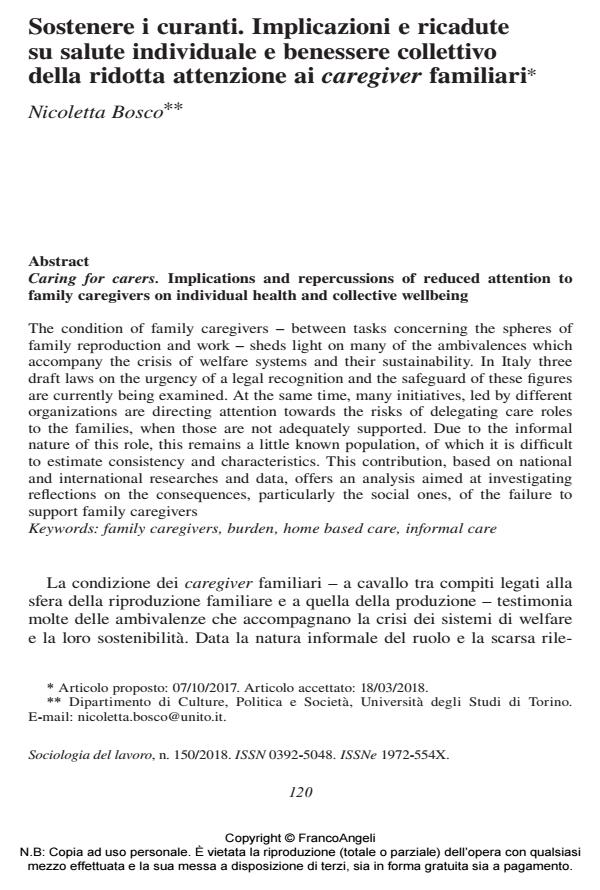Caring for carers. Implications and repercussions of reduced attention to family caregivers on individual health and collective wellbeing
Journal title SOCIOLOGIA DEL LAVORO
Author/s Nicoletta Bosco
Publishing Year 2018 Issue 2018/150
Language Italian Pages 16 P. 120-135 File size 119 KB
DOI 10.3280/SL2018-150007
DOI is like a bar code for intellectual property: to have more infomation
click here
Below, you can see the article first page
If you want to buy this article in PDF format, you can do it, following the instructions to buy download credits

FrancoAngeli is member of Publishers International Linking Association, Inc (PILA), a not-for-profit association which run the CrossRef service enabling links to and from online scholarly content.
The condition of family caregivers - between tasks concerning the spheres of family reproduction and work - sheds light on many of the ambivalences which accompany the crisis of welfare systems and their sustainability. In Italy three draft laws on the urgency of a legal recognition and the safeguard of these figures are currently being examined. At the same time, many initiatives, led by different organizations are directing attention towards the risks of delegating care roles to the families, when those are not adequately supported. Due to the informal nature of this role, this remains a little known population, of which it is difficult to estimate consistency and characteristics. This contribution, based on national and international researches and data, offers an analysis aimed at investigating reflections on the consequences, particularly the social ones, of the failure to support family caregivers
Keywords: Family caregivers, burden, home based care, informal care
- I’ll Be a Caregiver-Employee: Aging of the Workforce and Family-to-Work Conflicts Daniela Converso, Ilaria Sottimano, Sara Viotti, Gloria Guidetti, in Frontiers in Psychology 246/2020
DOI: 10.3389/fpsyg.2020.00246
Nicoletta Bosco, Sostenere i curanti. Implicazioni e ricadute su salute individuale e benessere collettivo della ridotta attenzione ai caregiver familiari in "SOCIOLOGIA DEL LAVORO " 150/2018, pp 120-135, DOI: 10.3280/SL2018-150007